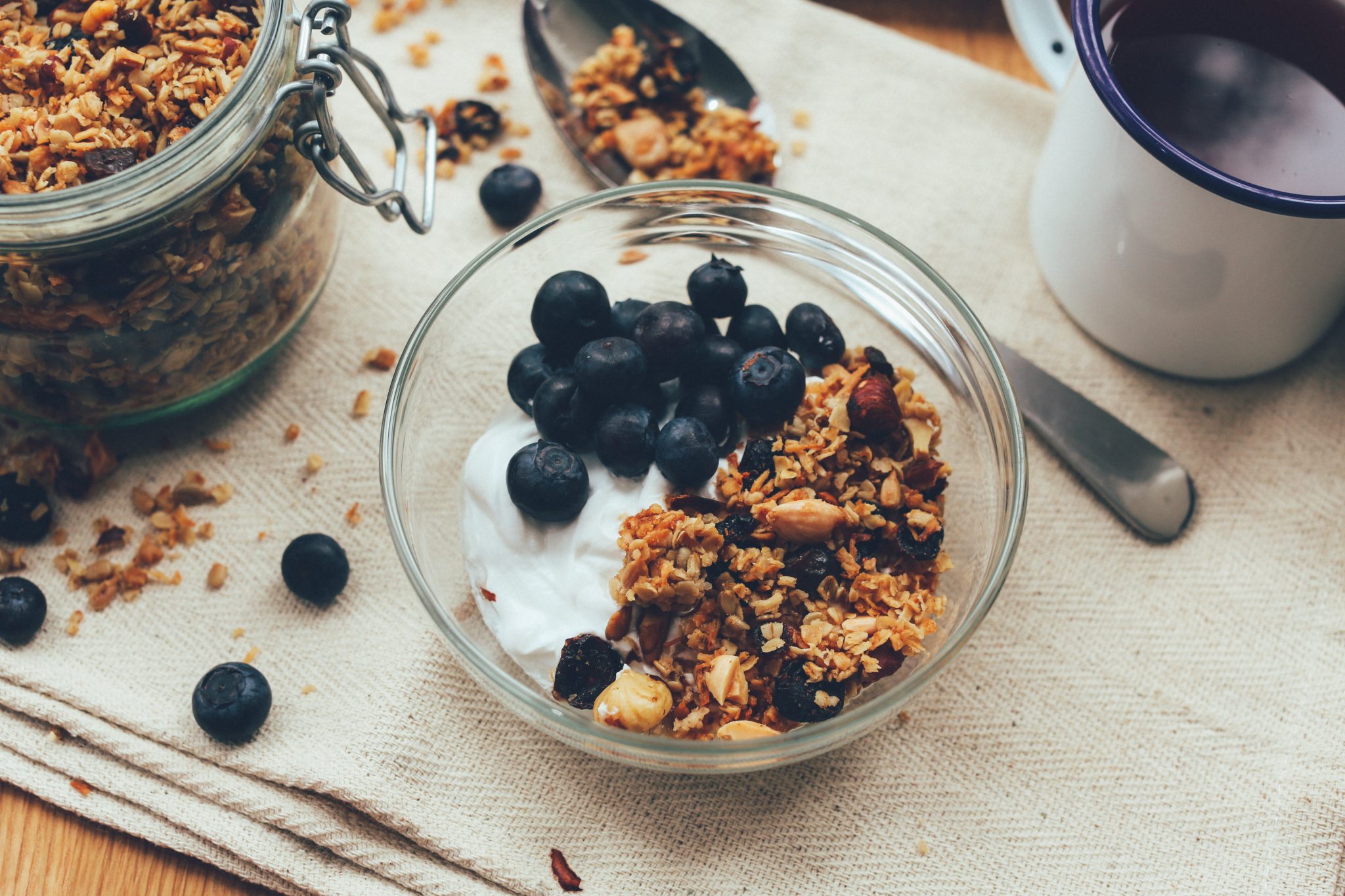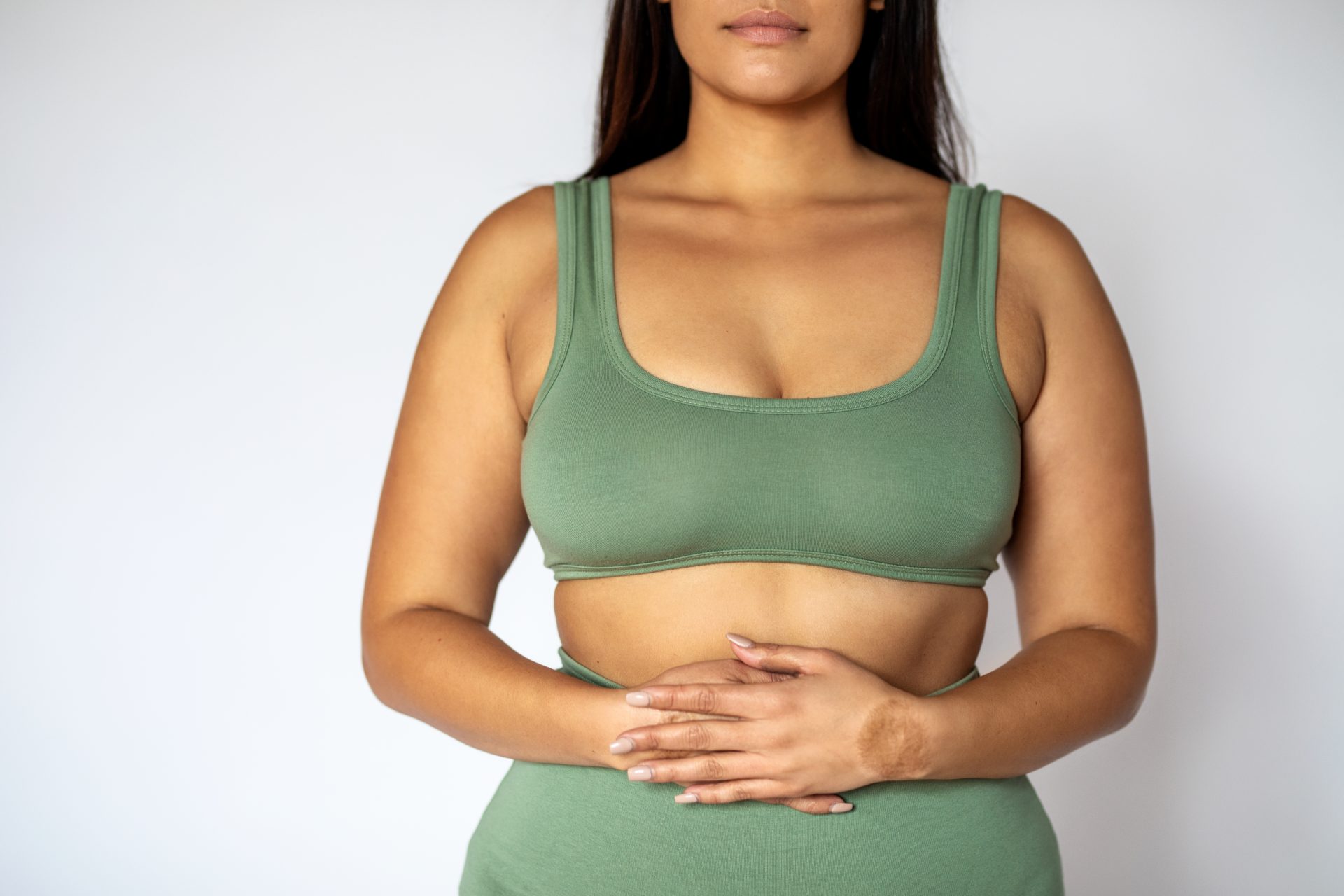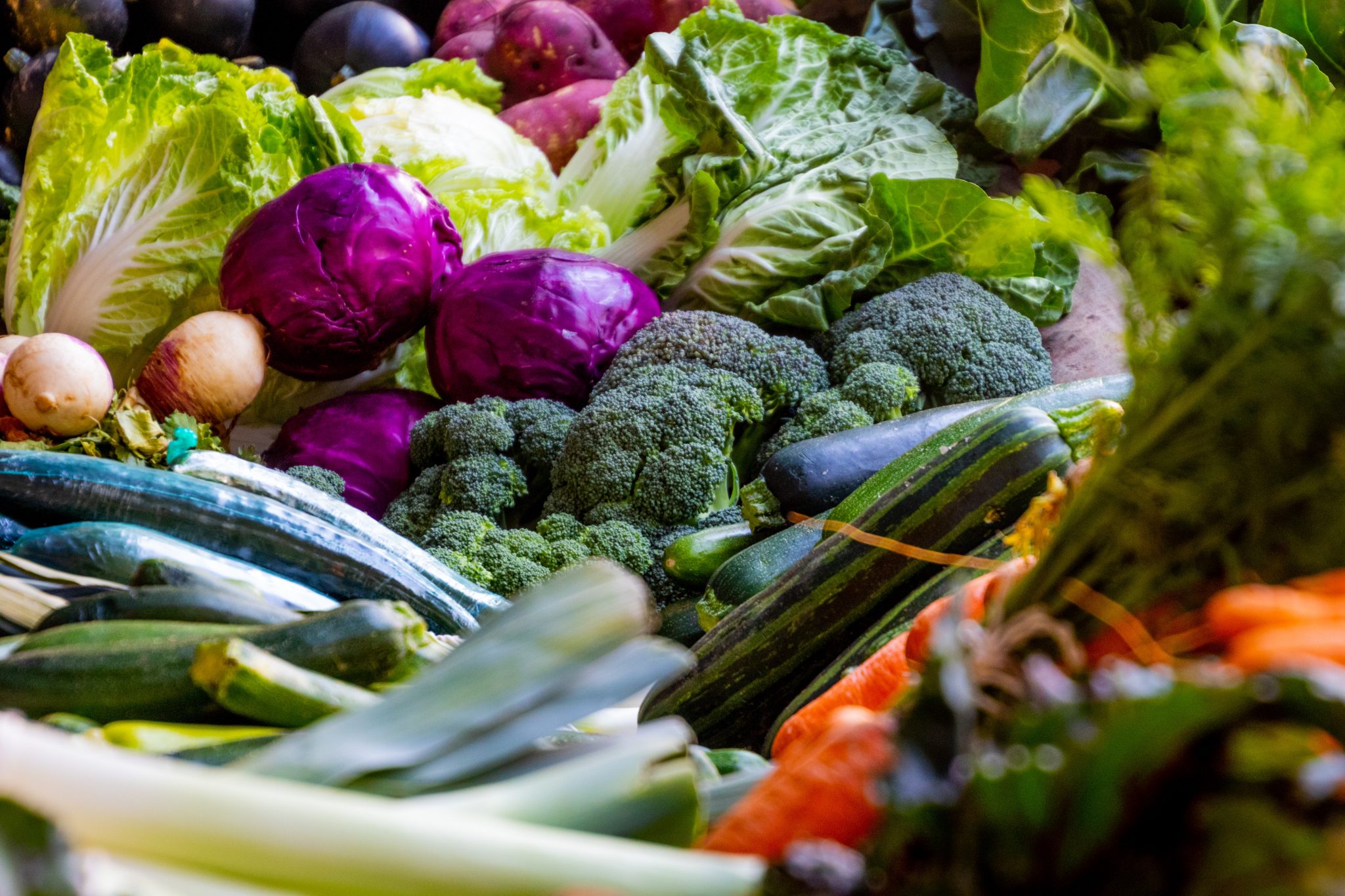Nutritionists give us the lowdown on what probiotics are, how helpful they can be for our health and when we should be reaching for them.
You’ve probably heard of or read about the hype around probiotics – touted as a “must-have” supplement containing live cultures that can combat different ailments from bloating to eczema – and for creating a flourishing environment in our intestines. In 2018, it was reported that the global probiotics market was worth $47.1 billion and is predicted to continue growing. It’s a big business, but are probiotics really worth the hype (and the hefty price tag) compared to a good old multi-vitamin?
Let’s start with what this tiny little pill is to begin with.
You may also like
How gut health affects our emotions and mood
What exactly are probiotics?
Probiotics are live bacteria and yeasts. These may sound like things our bodies should steer clear from, but they are actually incredibly beneficial. In fact, our body naturally contains bacteria (both the good and bad kinds) and probiotics are the “good” bacteria that can keep your gut healthy.
Two of the most studied types of bacteria are Lactobacillus and Bifidobacterium, which are found naturally in foods such as yoghurt, cheese, fermented foods and drinks such as Kombucha. According to the Microbiological Research Journal, Bifidobacterium is one of the most widely studied probiotic genus since they’re so effective in restoring gut homeostasis.
The microbiome
Our bodies contains trillions of microorganisms – many of which live in the gut. They can be found everywhere from inside our nose and throat, to our skin and even in our vagina.
The bacteria in our gut is part of the microbiome where communities of bacteria, archaea, protists, fungi and viruses live – with the majority of these residing in the large intestine.
“We know that the bacteria in our gut helps with our immune system” explains registered dietician Ruth Harvey from Pod&Pea Nutrition. “This happens when the gut communicates with the brain (and vice versa) through the production of neurotransmitters. Helping to promote the good bacteria in the gut, means that they can fight to suppress the bad bacteria.”
Prebiotics
Another important point Ruth makes is the importance of eating a diet rich in prebiotics – the substance that feeds the microorganisms and keeps the ‘good’ bacteria alive. “Prebiotics are fermentable carbohydrates and fibres which are scientifically known as oligosaccharides, disaccharides and polyols,” explains Ruth.

“Different strains of bacteria have different effects on the gut,” explains Harriet Eldridge, a registered nutritional therapist at Rooted Living. However, it’s not as simple as picking up any variety on the shop floor. Not all probiotics are formulated to survive the stomach acids, rendering them pointless. However some strains of bacteria do find the acidity favourable, such as Lactobacillus rhamnosus, making them a good choice to boost the bacteria levels in your gut. Because of this Harriet suggests speaking with a qualified professional to guide you on the right probiotic for you.

How do probiotics work?
By eating or supplementing with probiotics, we are adding more of the ‘good’ bacteria to the gut to support the existing microorganisms, but as mentioned earlier, we also need to make sure that we are eating a diet rich in prebiotics – the substance that feeds the microorganisms and keeps the ‘good’ bacteria alive. Prebiotics can be found in foods such as beans, oats, garlic, bananas and nuts. These foods contain fermentable fibres such as inulin and various types of complex carbohydrates (natural sugars) called oligosaccharides, which make them a prebiotic. Harriet strongly advises for people not to cut carbohydrates out of their diets as you need them in order to reap the benefits of prebiotics.
Ruth points out “If you are taking the right bacteria, at the right dose, in the right form and stored in the right way, evidence has shown that good bacteria will populate the gut.”
You may also like
Sort your s**t out: 6 nutritionist-approved tips for better gut health
Harriet says that “one of the most important jobs of gut bacteria is to defend against illness.” In fact, 70-80% of the immune system is located in the gut, according to research published in the Clinical and Experimental Immunology journal.
According to International Journal of Molecular Sciences, our gut bacteria play an important role in overall health as this bacteria helps to supply essential nutrients, synthesise vitamin K, aide in the digestion of cellulose (prebiotic fibre), and promote angiogenesis (development of new blood cells) and enteric nerve function.
Who benefits from taking probiotics?

Joanna Injore, a registered oncology dietician at JI Nutrition explains that probiotics or ‘good’ bacteria can help improve various gut symptoms. Studies show that people who have symptoms of irritable bowel syndrome (IBS), diarrhoea, constipation or bloating “have found that certain strains of probiotics improve their symptoms” explains Joanna. According to research, supplementation with probiotics in IBS patients significantly improved symptoms compared to a placebo.
Joanna also reveals that “probiotics containing the strain Lactobacillus casei and Lactobacillus bulgaricus prevented older adults from developing the vomiting or diarrhoea bug Clostridium difficile and taking Saccharomyces boulardii or LBifiduscillus acidophilus and Bifidobacterium Bifidus prevented ‘travellers diarrhoea’.”
The caveat to this is that you need to take them for at least four weeks to start reaping the benefits and it’s important to speak with a doctor if you are experiencing any new symptoms. Like Harriet, Joanna also recommends speaking to a dietitian as they can advise you on which strain of probiotics would be helpful to try, depending on your symptoms.
According to Ruth, “Eating fermented foods can be beneficial for a person without gut issues.” She mentions that fermenting certain foods can sometimes make them more nutritious, because it makes the nutrients “more accessible.” Although treating someone that has gut issues with fermented foods is not advised as it’s not as reliable as taking probiotic supplements. There is no way to measure the quantities of bacteria which are needed in order for it to be therapeutic or to determine whether they are even alive post-purchase. Taking a tablet is “more consistent” concludes Ruth. She does inform us “when the probiotics feed on the prebiotics they produce gases, which some people are more sensitive to, so they have to be careful and adjust the amounts.”
You may also like
Can exercise help with IBS? Yes, explains a gastroenterologist
Probiotics and menstrual health
Another reason to consider taking probiotics is the impact they have on menstrual health. According to registered nutritional therapist (mBANT) Le’Nise Brothers from Eat Move Love, “There is a section of our gut microbiome called the estrobolome, which is the collection of microbes that helps metabolise oestrogen in the body. It produces an enzyme called betaglucuronidase, which then helps oestrogen do what it needs to do in our bodies.” She calls this “the Goldilocks enzyme” as we want to get the balance just right in order for it to work. Le’Nise explains oestrogen is the hormone that controls menstruation. “It signals to the body that it’s time for menstruation to begin.”
Serotonin, both a hormone and our ‘happy neurotransmitter,’ is also produced in our gut. “Oestrogen has a regulating effect on serotonin, so when it drops in the late luteal phase of our menstrual cycle, poor gut health and poor serotonin production can contribute to mood-based PMS symptoms such as anxiety and unhappiness,” according to Le’Nise.
Oestrogen isn’t the only key player here, as we also convert the thyroid hormone (T4 to T3) in our gut. Le’Nise explains “this is really important because the thyroid and ovaries communicate and any thyroid dysregulation can lead to menstrual health problems.” This includes amenorrhea (the absence of menstruation), or heavy or irregular periods.
To support this, it’s important to have good daily bowel movements (which probiotics can help with) as “this is how we get rid of the oestrogen that our bodies have broken down in our gut and liver.”

Do we really need probiotic supplements?
“One of the most important jobs of gut bacteria is to defend against illness,” says Harriet. In fact, 70-80% of the immune system is located in the gut.“By increasing your intake of probiotics and fermented foods, eating a wide variety of colourful fruit and vegetables, increasing your fibre intake, reducing stress levels and regularly exercising, you can help to increase the diversity of your microbiome which reduces your risk of developing certain types of diseases,” says Harriet.
On the other hand, Ruth mentions that it’s hard to see the benefit for a generally healthy person taking “off-the-shelf” probiotic supplements. “There is not enough evidence to say that any general probiotic supplement will help.”
So the takeaway here for those feeling generally well is that fermented foods, which can contain live probiotic cultures, are a good place to start. Foods and drinks such as yoghurt, kombucha, kefir, sauerkraut, kimchi (spicy Korean fermented veg), some pickles, miso, tempeh and even apple cider vinegar are great sources of probiotics.
However, it’s important to remember that if the bacteria is alive, it doesn’t like high temperatures which can kill them off. While for most there is no harm in adding probiotic foods into your diet, we should incorporate them gradually to avoid overwhelming the gut and experiencing short-term side effects including bloating and gas.
You may also like
How to harness the power of your gut: a guide to maintaining a healthy, happy stomach
If you are experiencing gut health or menstrual issues, taking a probiotic supplement is something worth considering. “I will typically get my clients to start with integrating probiotic foods into their daily diet. Then, if necessary I’ll get them to take a daily probiotic supplement, which helps to introduce a wide variety of bacterial strains,” Le’Nise explains.
If you decide that a probiotic supplement is something you want to take, speak to a nutritional therapist or dietician for some guidance on which strains to look for. It’s also important to note that probiotics are listed as a food item rather than medicine so there isn’t extensive testing done. Hence why supplement brands can make a lot of unsubstantiated claims.
Click here to learn how to shop for probiotic supplements.
Follow @StrongWomenUK on Instagram for the latest workouts, delicious recipes and motivation from your favourite fitness experts.
IMAGES: Getty
Source: Read Full Article
